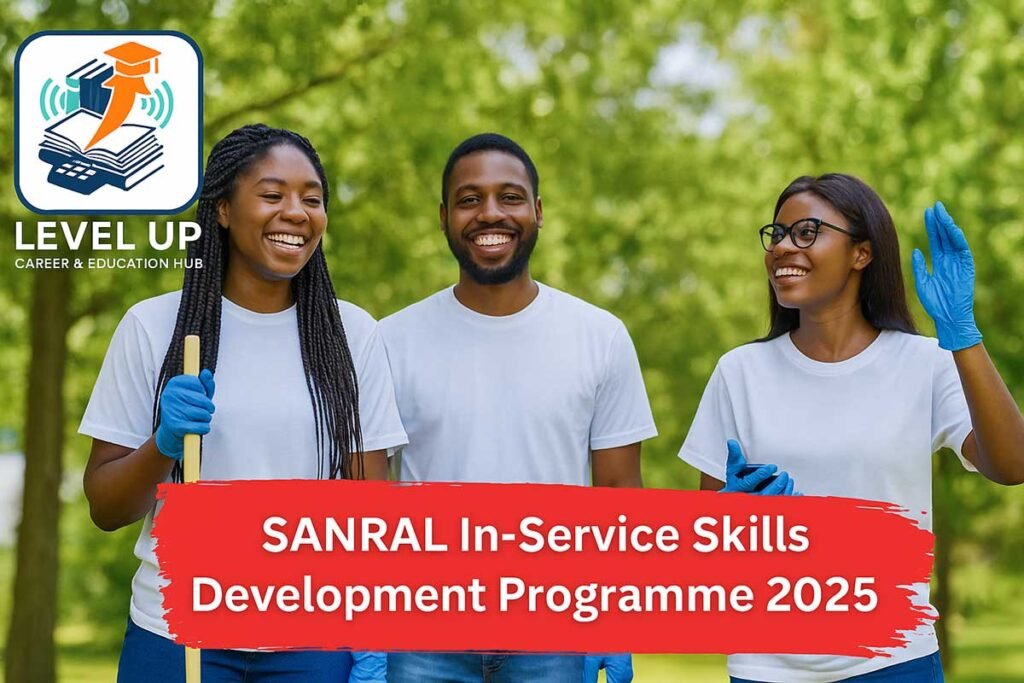Table of Contents
SANRAL (South African National Roads Agency Ltd) and the WBHO / Cebekhulu Joint Venture (JV) are pleased to open applications for their 2025 SANRAL Skills Development Programme under the Community Skills Development Grant (CSDG). This initiative forms part of the R.516-010-2019/1R contract, focusing on the upgrade of National Road R516 Section 1 (from KM 0.00 to Tooyspruit, KM 36.67).
This is a unique opportunity for emerging engineers, technical graduates, and TVET learners in the Thabazimbi Local Municipality to gain meaningful, structured workplace experience as they complete their academic requirements.
📌 Key Programme Offerings
| Stream | Discipline(s) | # of Positions | Duration | Eligibility |
|---|---|---|---|---|
| P1 / P2 In-Service Training | Civil Engineering | 3 | 12 months | University / UoT students requiring practical training |
| Workplace Integrated Learning (WIL) | Civil Engineering & Quantity Surveying | 3 | 18 months | TVET learners completing Nated / credit programmes |
Note: These placements are designed to combine academic curriculum requirements with hands-on exposure on a major infrastructure project.
Who Should Apply For The SANRAL Skills Development Programme?
- Students currently enrolled at universities, universities of technology, or TVET colleges
- Applicants who require P1 or P2 training / workplace integrated learning (WIL) to complete their studies
- Must reside in Thabazimbi Local Municipality (proof of residence ≤ 3 months)
- Must provide certified documentation: ID, latest transcripts, academic letters confirming training requirements
How to Apply
- Prepare the following:
- Cover letter indicating which stream (P1/P2 or WIL) you’re applying for
- Curriculum Vitae (CV)
- Proof of residence (≤ 3 months old)
- Academic transcripts
- Letter from your institution confirming training / WIL requirements
- Certified copy of your ID
- Bundle documents into PDF format.
- Email your application to: Tooyspruit@wbho.co.za
- Application deadline: 20 October 2025
Only applications meeting all stated requirements will be considered.
What You’ll Gain
- Supervised on-site experience aligned with your field of study
- Mentorship from seasoned industry professionals
- Exposure to large-scale road construction and infrastructure projects
- A foot in the door to South Africa’s booming construction and civil engineering sector
- Opportunity to fulfill your academic in-service/WIL requirements
Expanding Your Horizons: SETA-Funded Training in the Services Sector
While the SANRAL Skills Development Programme gives engineering and infrastructure learners hands-on experience, many other career paths are equally supported via Services Sector Education and Training Authority (SSETA) and other SETAs. These opportunities often focus on management, business, labour relations, and collective communication, and lead to NQF-aligned FET certificates recognized nationwide.
Why these skills are in demand
- In every industry, organizations need strong management and business capabilities to grow sustainably.
- Labour relations and collective communication skills are essential to maintain fairness, resolve disputes, and ensure compliance with South Africa’s labour laws.
- Employers value candidates who understand how to communicate across teams, negotiate, and mediate in workplace settings.
Sample Courses / Qualifications
Some typical courses you might find under this stream include:
- Business Administration Services (FET Certificate, NQF level)
- Labour Relations Management
- Collective Bargaining & Negotiation
- Communication and Office Management / Business Communication
These are usually structured as skills programmes or short learning programmes, fully or partially funded by the respective SETA. Upon completion, learners receive NQF-registered FET certificates, which carry recognition across sectors and strengthen employability.
How It Links to the SANRAL Skills Development Programme
- If you complete the SANRAL Skills Development Programme or WIL placement, you can use that practical experience to qualify for management or administrative roles in infrastructure projects.
- Demonstrated technical competence combined with business and communication skills positions you as a more versatile asset.
- Having a dual skill set (engineering + management or labour relation knowledge) can make you eligible for supervisory or site coordination roles.
Why This Programme Stands Out
This is not just a training opportunity — it’s a career accelerator. SANRAL and WBHO / Cebekhulu JV are committed to nurturing local talent, investing in community upliftment, and developing tomorrow’s civil engineering leaders. Join us, and turn your academic knowledge into working expertise.

FAQs (Brief)
Q: Can first-year university students apply?
A: No — applicants must require P1, P2, or WIL to complete their current programme.
Q: Must I be from Thabazimbi to apply for the SANRAL Skills Development Programme?
A: Yes — proof of residence in the Thabazimbi Local Municipality is mandatory.
Q: Is remuneration offered?
A: The programme is structured primarily to provide training and experience. (If applicable, you may mention stipends or allowances.)